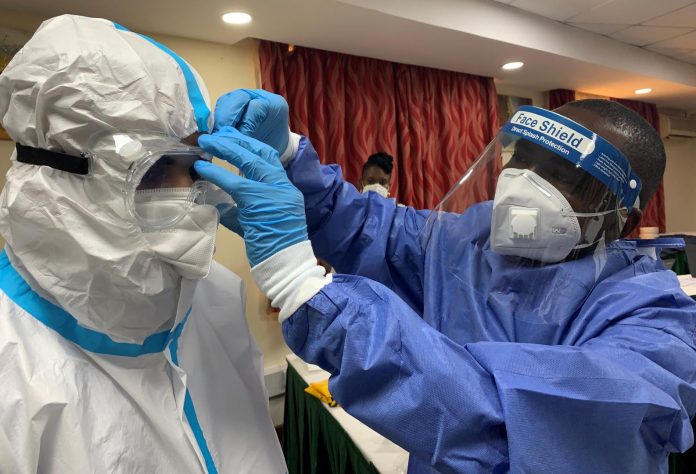The African Population Health Research Centre, based in Kenya, has been mining data across 47 countries in Africa, tracking differences in COVID-19 infection, illness and deaths among men and women. Sylvia Muyingo lays-out their key findings and explains why tracking these data is important.
What did you set out to track? Why?
I am part of a team that is tracking the latest COVID-19 global data broken down by sex, also known as sex-disaggregated data. It is the world’s largest database of sex-disaggregated data on COVID-19 and is a joint effort between the Global Health 50/50 (an initiative dedicated to gender equality in global health), the African Population and Health Research Centre and the International Centre for Research on Women.
We are tracking publicly available national data from 187 countries. This amounts to 99% of global cases and 99% of global deaths. For Africa, we report on all 47 countries covered by the World Health Organisation.
The tracker captures information on a wide range of data. This includes testing, confirmed cases, hospital admissions, intensive care unit (ICU) admissions and deaths by sex.
We’re tracking the data for three general reasons.
First, COVID-19 will affect men and women differently. It is therefore important to identify, produce and disseminate statistics that reflect the lives and realities of women and men. This will form the basis of gendered policies. These would, for instance, include stimulus packages that offer greater social protection to support women’s income and health insurance. Gendered policies would also take into account the secondary effects of the pandemic, such as gender-based violence and the availability of non-COVID-19 related medical supplies.
Second, early analysis of emerging COVID-19 data showed that just a few countries reported sex-disaggregated data. As of January 25, 2021, global data from our tracker indicated that about 60% of cases and 70% of deaths had sex-disaggregated data.
During the month of November, just seven African countries (Chad, Equatorial Guinea, Kenya, Liberia, Malawi, Nigeria, and South Africa) reported sex disaggregated data for both COVID-19 cases and deaths. Twenty-nine countries (62%) were not publicly reporting data on COVID-19 cases or deaths by sex. Over the course of the pandemic, the number of countries reporting any data by sex has only slightly changed or remained the same.
Knowing this means that efforts can be made to plug the data gaps. The tracker is also an advocacy tool to encourage governments, that are not collecting this data, to do so. Most national programmes in response to COVID-19 continue to ignore gender differences in health. Our tracker provides policymakers with an accessible database to monitor the situation.
A third reason for the initiative is that before it was launched there was no initiative that consolidated existing data and shared information for countries reporting sex-disaggregated data. The tracking system makes this possible.













